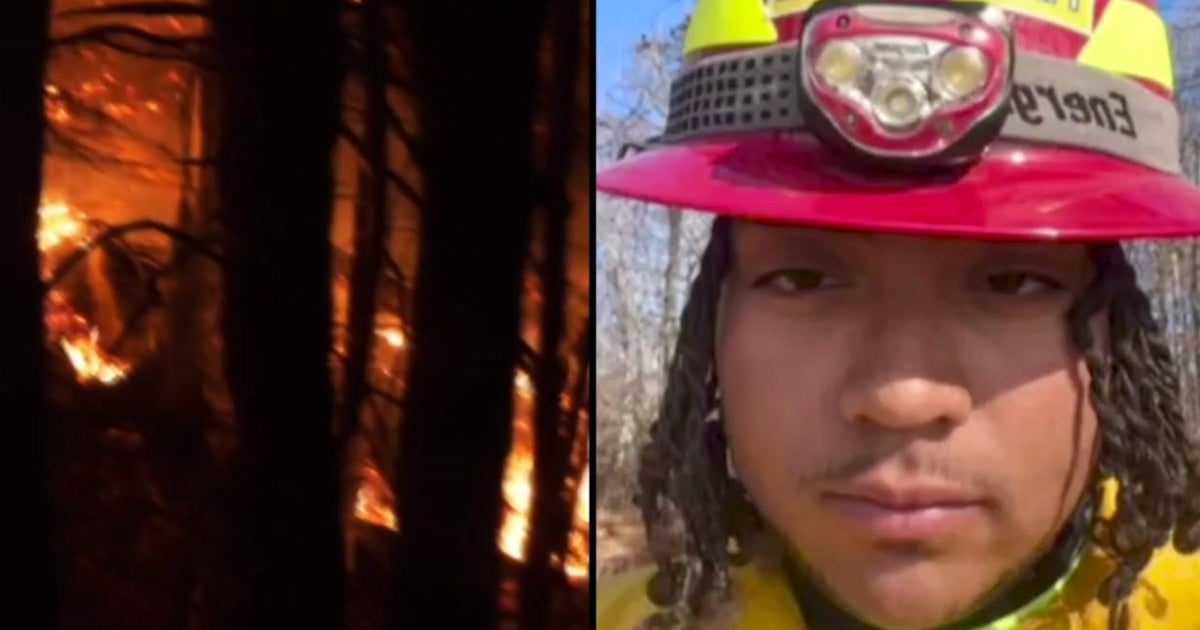Medical Officials Explain Red Tape Delaying Plasma Donations To Those Battling Coronavirus
NEW YORK (CBSNewYork) -- More than 750 COVID-19 patients nationally have had convalescent plasma treatment.
That's taking plasma from those who have beaten coronavirus to treat those who are very sick with it now.
But some families have reported delays getting it, CBS2's Alice Gainer reported Monday.
When 54-year-old retired New York State Trooper Danny Fernandez, a father of two, was placed in the Intensive Care Unit on a ventilator after contracting COVID-19, plasma therapy was brought up as a next possible step, but the family ran into red tape with the hospital.
"To wait for plasma for him would've been a few weeks because of bureaucratic paperwork and protocols," said sister Dr. Denise Fernandez. "They actually didn't have anything in place to even start that protocol."
CORONAVIRUS: NY Health Dept. | NY Call 1-(888)-364-3065 | NYC Health Dept. | NYC Call 311, Text COVID to 692692 | NJ COVID-19 Info Hub | NJ Call 1-(800)-222-1222 or 211, Text NJCOVID to 898211 | CT Health Dept. | CT Call 211 | Centers for Disease Control and Prevention
Lawrence Fialkow is the medical director for the New York region of the Red Cross. Along with the Food and Drug Administration, it created the guidelines for plasma donation.
"Any delays we're seeing is because we're building this from the ground up," Fialkow said. "Before we can collect them we need to make sure they meet the requirements. Namely, they had a test proving they had COVID-19 and then a secondary test proving they've recovered. There is a certain amount of time it takes to turn that around."
MORE: Coronavirus Update: Hospitals Now Using Donated Plasma To Test For Help Against COVID-19
Potential donors must also be 14 days asymptomatic and qualify to be a blood donor. Hospitals then order plasma from the blood banks.
The century-old but currently experimental convalescent plasma treatment gives sick patients the antibody-rich blood plasma from recovered patients to help fight coronavirus.
CORONAVIRUS PANDEMIC
- Resources, Hotlines, Unemployment & Covering Bills
- Remote Learning Tools For Parents Teaching At Home
- Ask Dr. Max Your Health Questions
- How Make Your Own DIY Face Mask
- How To Safely Remove Disposable Gloves
- Tips For Parents To Help Kids Cope
- Complete Coronavirus Coverage
At first, the FDA allowed very few to receive it through clinical trials. Dr. Michael Joyner with the Mayo Clinic leads the expanded access to convalescent plasma program for the entire country.
"There were regulatory consent and ethical issues that had to be addressed," Joyner said. "We've worked closely with the Food and Drug Administration, so the expanded access program protocol can be used at any hospital or acute care facility in the United States that is capable of administering blood products."
Robert Purvis is senior vice president of New York Blood Center.
"At the start it was very slow. Now we're seeing more and more hospitals ordering product, understanding the potential uses. That's still, I think, what the biggest gap is right now," Purvis said. "When do you use it, how do you use it and on the physicians' side, there's still an education that has to happen."
MORE: Coronavirus Antibody Testing Hopes To Shed Light On Extent Of Infections In New York
After five days of back and forth, Danny Fernandez was able to receive plasma, and his sister said he's showing improvement.
"I think mostly what I miss is his funny jokes. He's a little sarcastic," Denise Fernandez said.
As for whether this can work for others, there's nothing definitive yet, but researchers say early intervention seems to be the key, Gainer reported.
The Red Cross and New York Blood Center both expect any plasma delays to decrease with protocols more firmed up, increased awareness, and more donations coming in. They urge everyone who can donate to do so.



